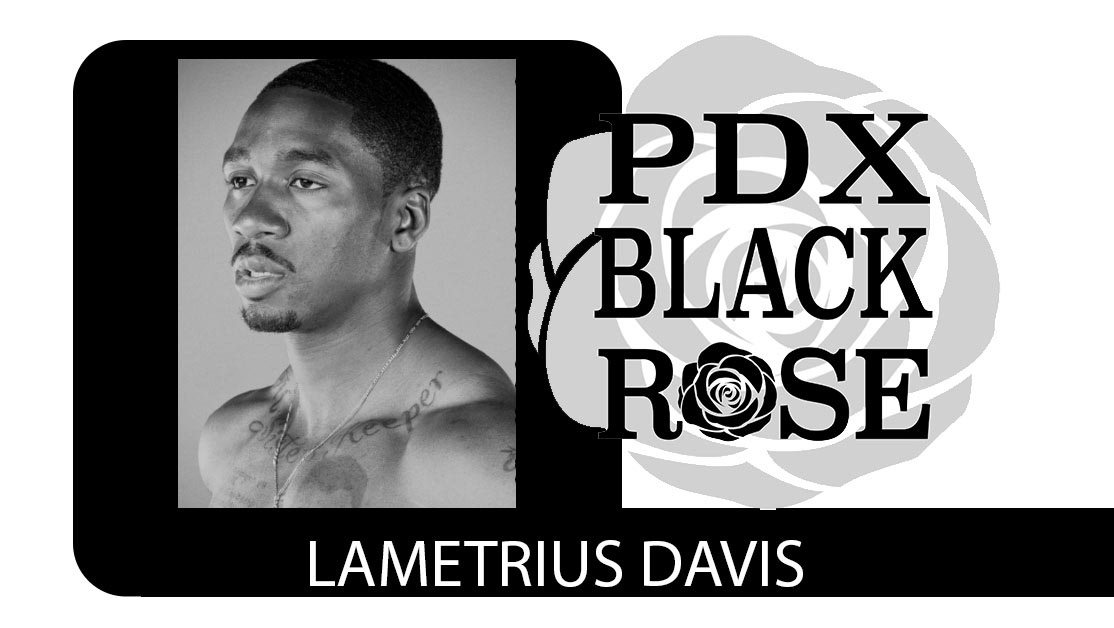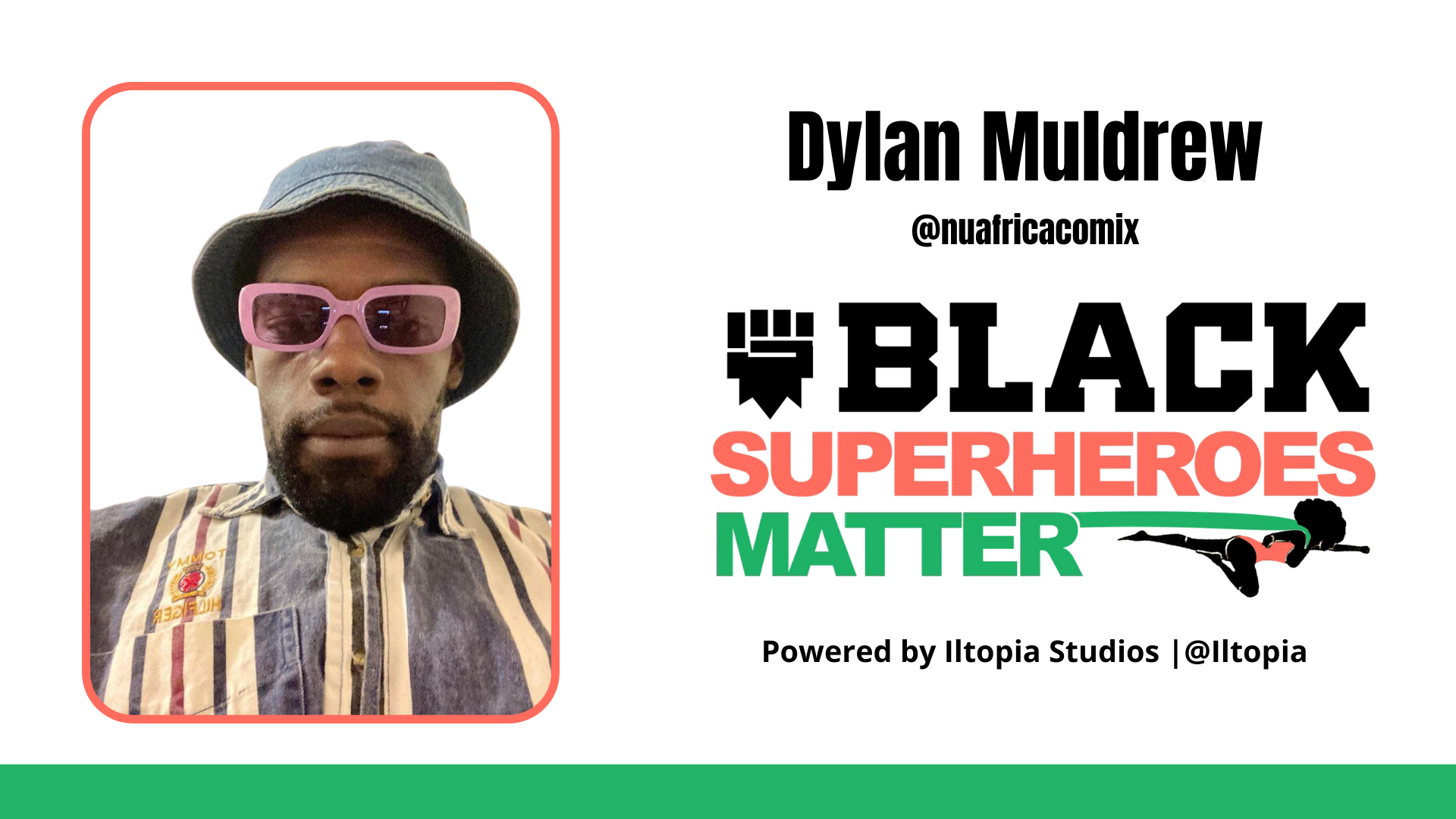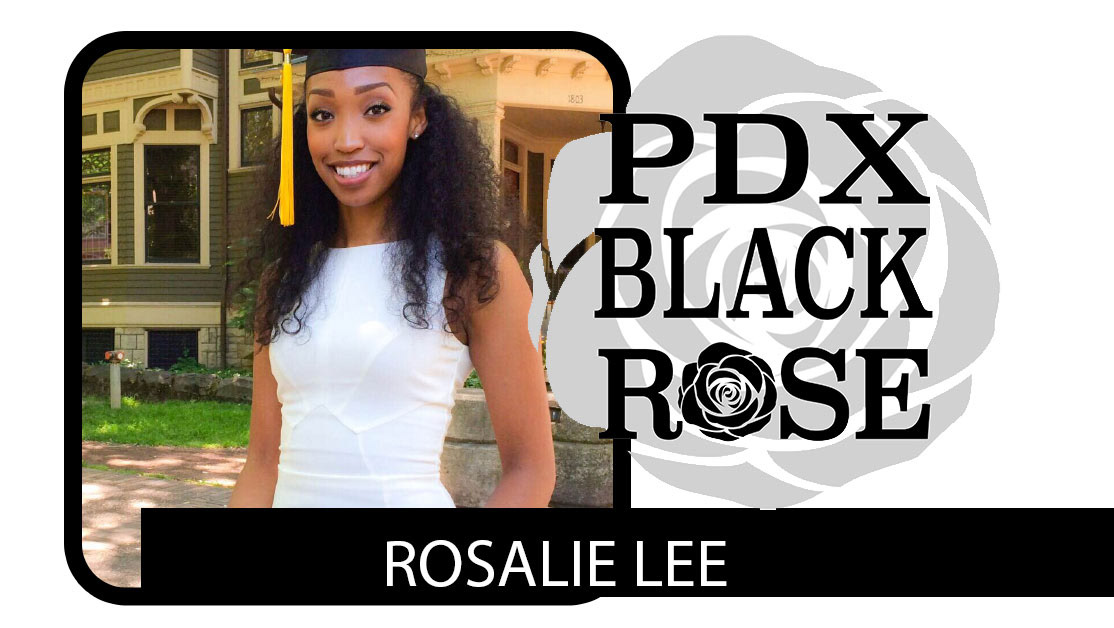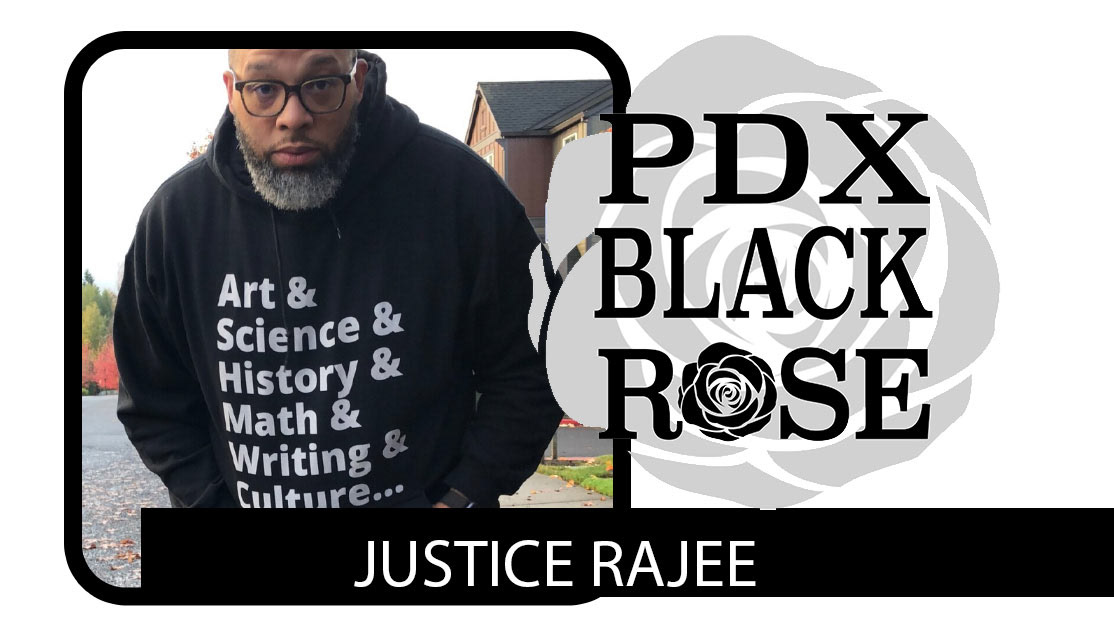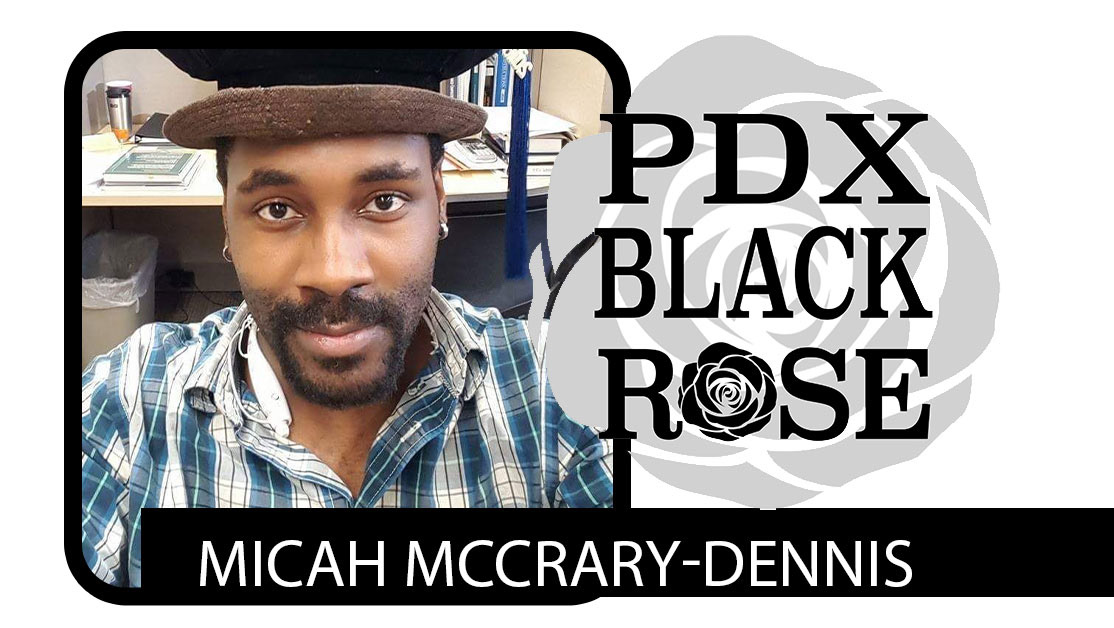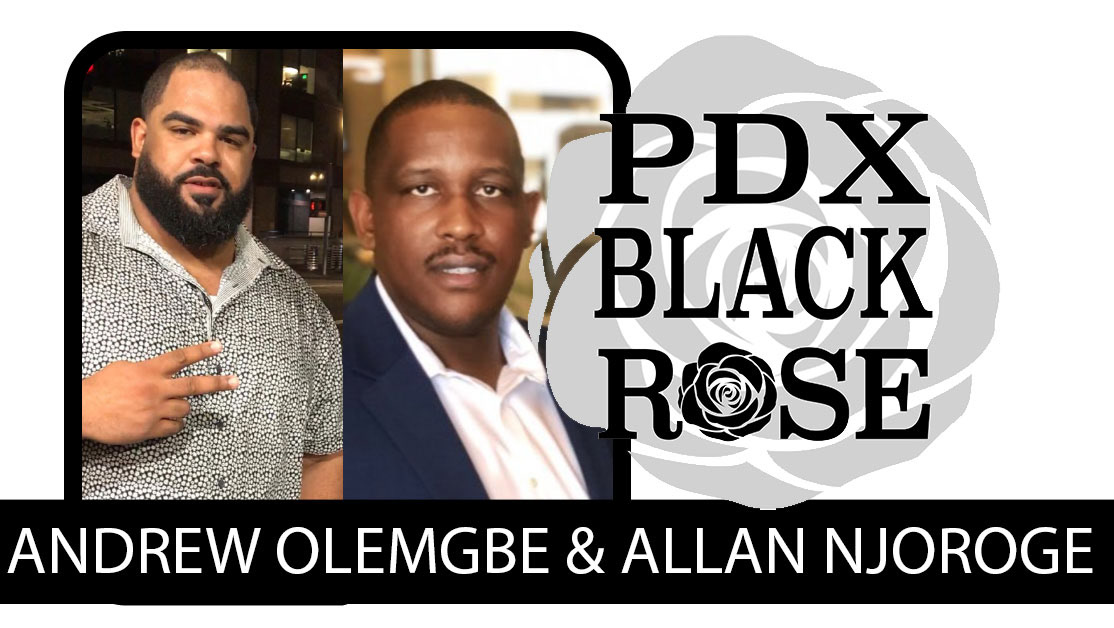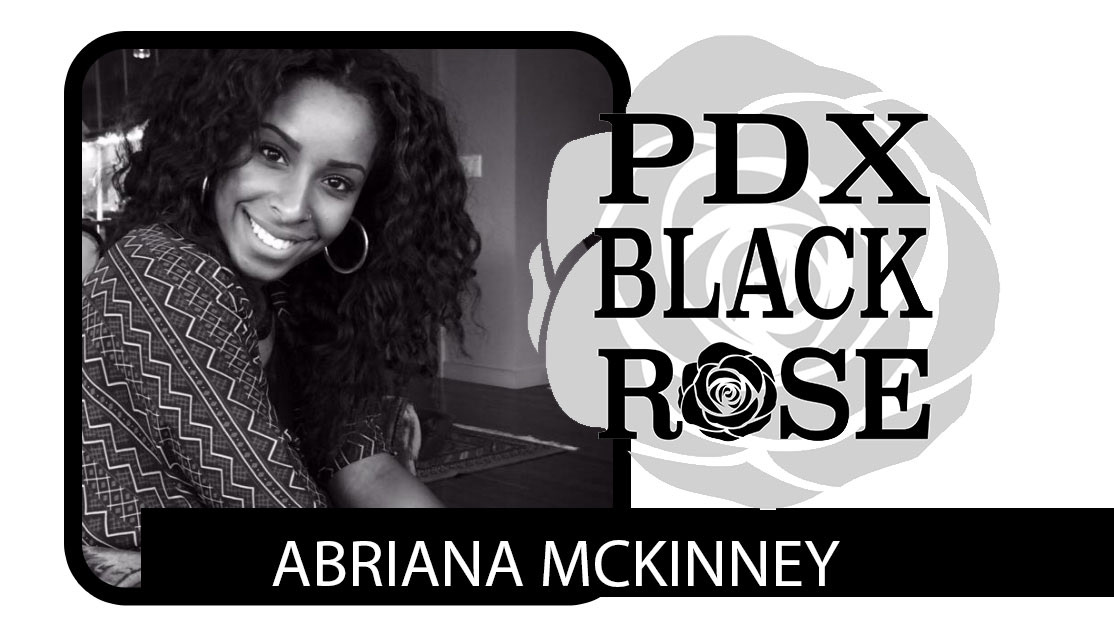Hailei Aberson, a native Portlander with roots in Northeast Portland, joins us on the podcast for a conversation about what it means to be black in Portland. Growing up, Hailei found herself in a unique position. He mother is white, her father is black, she was raised by 3 parents that all got along, she has brown skin, straight black hair, and her name is spelled the Hawaiian way. She is proud to say that she is a walking contradiction. Throughout her life, people have tried and failed to put her identity in a box. As she came to her own definition of what being black meant for her, she also finding ways to navigate the gentrified landscape of Northeast Portland.
During our conversation, we dive deep into what led to her awakening. For most of her early years, she grew up in a loving, accepting community. After her parents moved to a new area, she found herself leaving the diverse population she felt close to and quite literally becoming the diversity of both her school and neighborhood. During this pivotal time in her life, she not only had to navigate being the only person of color, but also figure out what it means to be a young woman.
Her interest in education was fostered and tested throughout her life as she battled systems that failed to provide adequate resources to challenger at first, then fail to get her up to speed when she needed it the most. It wasn’t until she was able to make her own choices that she finally got the answers and guidance she really needed.
As a biracial, young woman, the conversation of what whiteness and blackness means is
a bit nuanced. Although the majority of her family members social support is white, she stands out physically as black. Despite what she claims to identify the most with, her white peers can’t get passed her ethnic features. When she is around her black peers, her blackness is constantly questioned. This forces her to recede and find her own path alone. Ultimately, she does, and with it the community that accepts it for what it really is. Unapologetically black.
Notes from the conversation
Hailei Aberson, a native of Northeast Portland, Oregon, joins us on the podcast this episode. Being of mixed race, she talks about her identity as a biracial kid growing up in one of the whitest urban areas in the nation.
—–
She went to King elementary school and was the second graduating class that included 35 students. Being at that school for 10 years, she described it as an extension of her family. She always enjoyed education but the resources at her school hindered her opportunities to explore the subjects she was interested in. One thing she did notice was the variety of programs that were available to help underprivileged children. It was odd that a student didn’t have free and reduced lunch at the school. There were also more mentors that reflected the diverse student body they had, and that the kids could see themselves in.
The sense of community there was significant for her. It exposed her to many things she would have not been introduced to despite the noticeable lack of resources in other areas. She recalls being in the only Black children’s choir led by Mrs. McVae where they sang for Coretta Scott King, at Washington D.C., for the Today Show, and they were in a Jeep Commercial. When she left school, she noticed that the community provided immediately went away. The first program to be cut was actually the children’s choir.
She was set to go to Jefferson High School with a more diverse student body, but her mother moved to a more privileged area leading her to transfer to Grant High School which is predominantly white. She admits being relieved and excited for the change because most of the kids she went to elementary school with were going to Jefferson, and Hailei was eager to meet new people. When she got there, she was really surprised that there were so many white kids as there actually were compared to people of color.
She mentions how here awareness increased as she grew older and made her realize how white Portland actually was. Combine that with increase in development, gentrification, changes in the economy, the awakening became more jarring.
—– I was really curious about Hailei’s love of community at King but wanting to go to a predominantly Grant High school when her community was at King was going to Jefferson. I expected her to want to continue with that community, but to my surprise she was eager to switch things up. Obviously, when you are entering high school and your family moves to a new area, you can’t control the school zone you end up in. I went to multiple high schools myself, and my first high school was a predominantly white one. I ultimately left it because
I did not want to be the only Black kids at the school.
For Hailei, she was tired of dealing with the same people she went to school with every year for 10+ years. School crushes felt more like annoying cousins after a while. Like most angsty pre-teens, the awareness and reasoning behind many choices get lost in the moment of doing. In many ways this was an opportunity for her to go to a better school with better resources to be challenged in was that she couldn’t at her elementary school. This is an understandable response to what we all know about the education system and how it disproportionately disadvantages Black and Brown students. This has been a national trend going on since the age of white flight post-segregation.
When she got to Grant, it forced her to get out of her own bubble that she grew accustomed to at her previous school. Being in a different place with completely new people exposed her to a different culture.
Hailei never grew up in a two-parent household, but both parents were actively in her life. Her father, who is Black, later married her stepmom and had her half-sister. Both her mom, stepmom, and father worked together in a healthy nontraditional relationship to co-parent both of them. To others, that was odd because many of the kids around her had parents who were divorced or didn’t get along. Being in such a stable, but nontraditional family made her a pariah in her circle. Many kids resented what she had, and that resentment affected the perception many had of her. In hindsight, we know that children can project their frustrations on other as a way to cope with their own stressors. Regardless, that negatively affected Hailei as she tried to find herself and build her support circle.
—–
During that time, the idea of blackness becomes propelled to the fore front as Hailei grew older because she was considered a “walking contradiction.” Her hair is straight, she has dark skin, and her name is spelled the Hawaiian way. Her identity as a Black woman growing up could not be contained within one particular box because there was no box that fit her. After countless moments where people would ask, “what are you?” She grew frustrated in needing to define her Blackness so that people can understand it.
That leads one to ask, how do you define blackness? Better yet, can you? Would that definition of blackness translate to a mixed-race girl growing up in Portland? If not, then is that definition really a reliable measure of blackness? Or is it just a stereotype that is being perpetuated by a narrow definition.
——
8th grade for some reason, is a defining moment. Many tv shows hint to it, but during that time, our bodies change, we become interested in dating, and we learn more about ourselves. I believe this is when our curiosity takes a new shape. It makes us as black people aware of the disparities that plague the black community. I can’t speak to how today’s climate is now that almost every kid has a smart phone, but when I was growing up, many of the
—–
When Hailei moved to the suburbs, she noticed a change in what she wore, how she styled her hair, her interests, etc. In hindsight, she realized that she physically changed to accommodate the people she was now around. Leaving the predominantly Black school and area, to go to Oregon City was in part the catalyst for that shift. She initially though it was conscious effort on her part to not feel like another and try to fit in, but when she was a sophomore in high school she began to question why she was doing certain things. This led to a rebellious phase that many teens go through around that age. As a young, Black woman growing up in a white area and trying to rebel, navigate parental pressures, and find her voice, it often became difficult to balance without falling off track from time to time.
When you try to find autonomy in a white area as a Black kid, identity issues arise. Going to school every day around white kids, you unintentionally pick up different mannerisms that are available and commonplace. When you find your way back to the circle of Blackness you are familiar with, you often chastised for how whitewashed you sound and dress. It makes you a pariah.
When you are in those white areas what reference points/role models are available for Black kids to latch onto? For Hailei, her father comes from a small Black family and he only married and had kids with white women. On here moms’ side, she is the only Black person in a big family of aunts, uncles, cousins, and grandchildren. Without any specific role models in life that could teach her to navigate her Black experience, she looked to music and TV. She didn’t grow up in an age that showed diverse characters on the screen like we see now. Most of it was on BET and MTV. One can argue that those depictions are not an accurate picture of Blackness, but when that is all that is available, can you really blame someone for trying to identify with something?
She found it really hard to make friends when she got to the predominantly white high school. It was a stark difference from when she was at King from what she recalls. It could have been a multitude of reasons: most of the kids grew up with each other, there were cliques, and she stood out as one of the very few people of color. At face value, people were apprehensive to interact with her because her appearance was confusing to them.
She jokes that she identifies more as a white people than a Black person because she has more white influences in her life and because she is half white but telling that to people that see her ethnic features seems like an edgy joke rather than a believable reality. She wasn’t believed by the community she identified with. No matter how much white she had in her, she was not treated that way. This led her to isolate herself. She did not feel accepted by her peers, and it was difficult. It was even more jarring because she went to al all white school, came home to a white household, but wasn’t accepted by the white kids at the school.
We can go down the list of people that are mixed with other things that are ultimately labeled as Black. We know of the “one drop rule” that classifies Blackness based on a threshold. Even if you are 15% Black, you are classified as Black. It is interesting that in this day and age, white people leap at the opportunity to get their DNA results back to see if there is some African. Maybe because they are looking for their N-word pass…
——
There are many forms of racism that are unspoken and less overt that lead Black people into isolation. Part of it is reflective of Portland because there is this need to know/underground social landscape throughout it. Even though they are unspoken, they are just as impactful. The notion that because it is unspoken, it not racist is a farce because the experience is still effective. Often not noticeable until you learn that certain things only happen to Black people. Hailei experienced that when she graduated college and applied for jobs. She was worried she wouldn’t get hired, but people would often tell her that “they are looking for people like her.” Implying that because she is a Black person, she is more likely to get hired. Numbers show that that is not the case, as Black people are not getting hired in any sectors at an alarming rate. This is what racism looks like in the 21st century. Spreading false narratives that Affirmative Action makes it easier for People of color to get hired. More importantly, it made Hailei feel like anyone that hires her does so not so based on merit, but on her skin color and gender. She wondered whether she was good enough from the beginning.
The whole charity case narrative is alive and well. It is frustrating because it seems like Black people can never be celebrated for their efforts. It is always because of their skin color that they got opportunities. As a mixed-raced kid, Hailei not only got that she was not good enough, but also not being Black enough.
Hailei has a unique position of being in the center of the white-black conversation literally. Because she had an interest in education, she saw what disparities looked like when she went from an all-black school to an all-white school. At the Black school, there was a focus on arts and music, but at the white school the focus was on AP classes. Part of it was the resources the schools had access to and the other was the constant perpetuation of a narrative that black people are lesser than. Therefore, any kid that wants to pursue anything outside of arts and music is automatically put at a disadvantage because cause of access to resources and support. Even when the black kids go to white schools and have better resources, they have to deal with the overt and covert racism that fuels a toxic learning environment. This leads the person to go into the world and deal with feelings of inadequacy and feeling like a charity case. It is a vicious cycle perpetuated by society rather than specific people. When white kids are disadvantaged, the resources required to improve their conditions just are not as high because a white person going from a school with poor resources to a school with better resources don’t experience harsh shifts in culture and climate as black kids do.
—–
Not all blackness is the same. Black people recognize this. White people do not.
—–
Hailei talks about her experience with education changing when she got to Grant High school because she noticed that other kids were introduced to various topics early on that provided more of a foundation for them to succeed in their current classed. One specific example was about writing a thesis. She did not know what a thesis was, but all the other students in her class did. Even though she was behind, she didn’t feel that her teachers tried to help her catch up to speed. She didn’t know what she didn’t know, and the lack of support from the educators around here made her feel as if it was her fault and not the fault of the educational system. This became a barrier for here to explore what she loved which was education.
When she got to college, she was test and diagnosed with a learning disability. It gave her more peace of mind because it made her realize that she was not dumb she just required a little extra time to learn material. That made the path toward education a little clearer because the obstacles weren’t as shrouded in mystery as they were once perceived to be.
Key Links:
Instagram – https://www.instagram.com/hailei22
Follow us on Social Media @PDXBlackRose
Twitter - https://twitter.com/pdxblackrose
Instagram - https://instagram.com/pdxblackrose
Medium - https://medium.com/pdxblackrose
Online Store - https://gumroad.com/blackrosepdx

